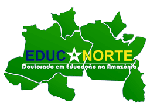Banca de QUALIFICAÇÃO: MARCELLA GOMES ESTEVES
Uma banca de QUALIFICAÇÃO de DOUTORADO foi cadastrada pelo programa.STUDENT : MARCELLA GOMES ESTEVES
DATE: 16/12/2022
TIME: 14:00
LOCAL: Remoto
TITLE:
THE ISSUE OF LANGUAGE IN EDUCATION - conceptual and methodological problems and implications
KEY WORDS:
Language; conceptions of language; education; BNCC
PAGES: 76
BIG AREA: Ciências Humanas
AREA: Educação
SUMMARY:
The meanings attributed to the term language are diverse and diverse, sometimes approaching communication (frequent use) and attributing this function to speech (articulated oral signs); sometimes being perceived as an expression, in which sounds, images and gestures translate feelings (systematic means of communicating ideas or feelings); as a transmission of information, when it alludes to the animals' instinctive process (dolphin language); as a set of rules, when culturally constructed characteristics give the idea of a certain state (color language); and as a command, when certain instructions result in procedures (computer language). The meanings attributed to language have their reason for being and are, in a certain way, related by approximation to the meaning of language. They are approximations that occur metonymically (when meanings follow contiguity) or metaphorically (when meanings are broken). However, there are definitions that do not consider the process of thinking, reaching the limit of disregarding the human aspect of its conceptual essence. This research aims to understand how the conceptual inflation of language, which shapes contemporary pedagogical reflection and practice, is manifested in the National Curricular Common Base (BNCC) and what the consequence of this is for teaching. it is characterized as documental and bibliographic research, the research has been developed through two actions: theoretical-conceptual study (by study of classics and study of the issue) and analysis of the empirical object (systematization and analysis of terms). According to Marcondes (2009), the philosophical discussion about language dates back, at least, to Plato, who questioned the contribution of words to knowledge, considering the sign convention. The author observes that Aristotle, rebutting the conventional characteristic of the word, presented the affections of the soul as what is understood by subjects regardless of the assigned signs and that other thinkers called idea, concept, symbol (such as Locke and the Port-Royal school). It emphasizes that some thinkers, such as Noam Chomsky and Steve Pinker, attribute to language the condition of an innate characteristic of the human being (part of human nature), unlike those who believe that language is characterized by a logical structure, with specific rules (such as Richard Rorty and Saussurre), or those who consider it inseparable from culture (such as Humboldt, Benjamin Lee Whorf and Edward Sapir) and those who value it as a human experience (such as Wittgenstein and Austin). And each understanding of language presented by these classical thinkers influences the most varied areas of science. In the analysis of part of the empirical object (the Early Childhood Education Stage) it was found that there is no convergence of meanings for the term language, nor criteria for the use of terms, many citations can or were easily replaced by other terms. Language, in the BNCC document, is understood as an instrument, object and vehicle without explaining the reason for these attributions or even considering the different natures that lead to these understandings.
COMMITTEE MEMBERS:
Presidente - 1776813 - LUIZ PERCIVAL LEME BRITTO
Interna - 1965707 - SINARA ALMEIDA DA COSTA
Externo ao Programa - 1292601 - ZAIR HENRIQUE SANTOS - UFOPAExterna à Instituição - MÁRCIA CRISTINA GRECO OHUSCHI - UFPA
Externo à Instituição - JOSÉ VICENTE DE SOUZA AGUIAR - UFAM




